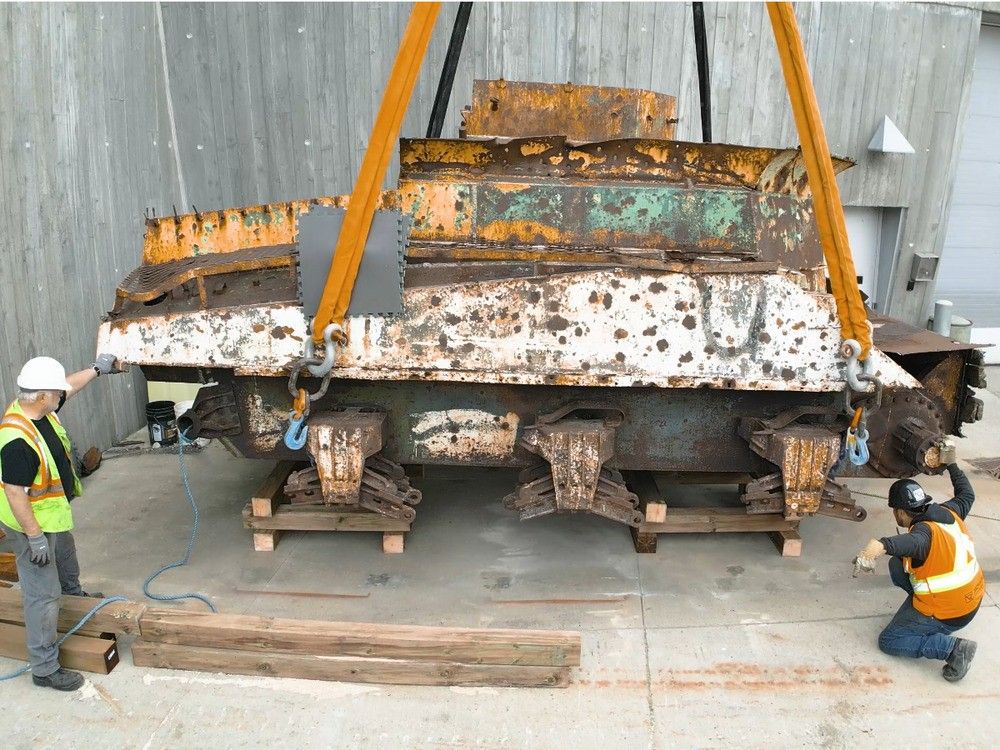NEW-WES-VALLEY – The affordable housing complex Mike Tiller is hoping for is unlike anything else in his community.
The sleek, modular buildings with sloping roofs and wide windows pose a sharp contrast to the brightly-coloured clapboard houses dotting the shores in New-Wes-Valley, a small fishing community along the northern end of Newfoundland’s Bonavista Bay.
But the homes would solve a problem Tiller never thought he’d face as mayor of the rural Newfoundland town: people are moving there, rather than moving away. And they need somewhere to live.
“It’s a huge change,” Tiller said in a recent interview, shaking his head outside the town hall. “You can’t have people coming here looking for homes and not have anything for them to live in or you’re never going to grow your town … And we can’t afford any more major decreases in population.”
That’s why the town paid about $140,000 for Biosis, a Danish architecture firm with experience building on rocky landscapes, to design a 17-unit affordable housing complex that will sit on oceanfront land.
The municipality purchased the land, making use of a federal grant. The town is also ready to foot the bill for road and sewer connections. Council will publish a request for proposals from interested developers in the coming days, Tiller said.
“The need is there, the desire is there,” he said. “We just need somebody to listen.”
Rural communities across Newfoundland and Labrador have been slowly emptying out since 1992, when the federal government brought the lucrative northern cod fishery to a halt as the fish stocks collapsed. The move resulted in one of the largest mass layoffs in Canadian history: businesses closed, jobs dried up and young people began to move away, leaving behind their aging parents and grandparents.
The demographics in New-Wes-Valley are typical in rural Newfoundland: the town is home to some 2,050 people, more than a third of whom are 65 or older, according to the latest census. The average age there is 52.
But things are shifting. People are moving to New-Wes-Valley, many of whom are coming back home after working in St. John’s or other provinces.
As a result, the increased demand is driving up housing prices and property taxes.
Ten years ago, homes in New-Wes-Valley regularly sold for $30,000, said Cheryl Smith, a town councillor and real estate agent. Now they can sell for more than $100,000. That’s a lot for many locals, but still attractive for people in other parts of Canada, Smith said.
Seniors on fixed incomes who want to move into smaller homes have few options. They can’t afford the new housing costs, nor can they afford the municipal tax hikes, Tiller said. Some have moved away to Gander, N.L., a much larger centre with more housing options.
He wants them to be able to stay.
Sarah Norris left New-Wes-Valley for Alberta on Christmas Day in 2010, about two years after graduating high school — it was a cheap flight, she explained in a recent interview.
She moved back home in March 2022, wanting a fresh start. She now owns and operates the Salt & Sail café and tavern, where diners in bright booths look out over low-sloping rocks leading into the ocean.
The biggest change she sees in her community since she returned is the number of young families.
“Our kindergarten class this year needed two teachers because it was so large, I think it was 24 students. That is huge for our area,” she said. “I think people are just really thirsty for peace, honestly, just tranquility. And that’s what you’ll get here.”
Norris said she knows people in their 90s who are still living in large saltbox-style homes where they raised their families. There’s just nowhere else for them to live, she said.
“They’re, like, 95 and they just move their beds downstairs,” Norris said.
If they could find a smaller place, they could sell their bigger house to a young family like hers, she added.
About 40 minutes south of New-Wes-valley, the same scenario is playing out in Centreville-Wareham-Trinity with one major difference: the town already has affordable housing. And it’s full.
Mayor Ivan Pickett walked down a road lined with modern-looking duplexes that rent for about $650 a month. Some had basketball nets and bikes in the front yard.
A handful were built about a decade ago, when the town got some funding to build affordable homes. The majority were built later, by a private developer, Pickett said.
The town needs about 20 more. “At least,” the mayor said. “20 units would be gobbled up pretty quickly.”
Tiller doesn’t believe New-Wes-Valley’s population is going to stop declining — there still aren’t enough young people to balance the number of older residents. But he hopes to keep the population higher than 2,000 for as long as he can — and he believes the affordable housing complex will help.
“We want to keep our seniors here. We also want to attract newcomers to the area,” Tiller said. “We are doing whatever we can to give people options so that they don’t leave our town.”
This report by The Canadian Press was first published July 31, 2025.



